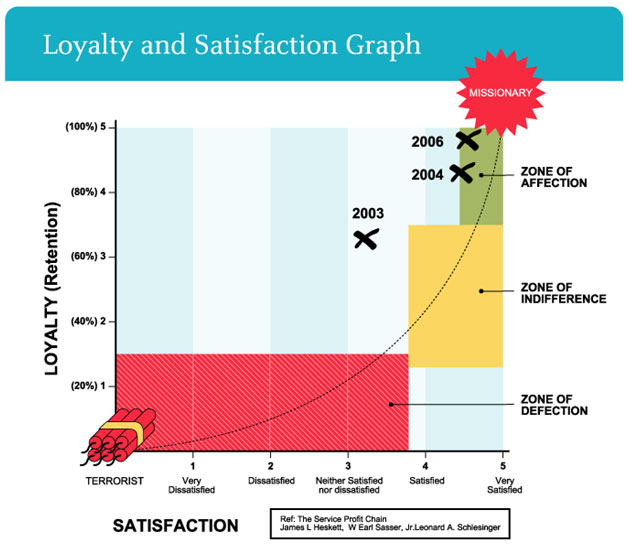In the quest to build a loyal customer base, what methods should a company use to measure customer service? Technology has made it easier to ask genuine customers how they feel about the service provided and our feedback culture means that people are quite prepared to give up their free time to tell you what they think. Is this therefore the end of mystery shopping?
The short answer is no. Mystery shopping and customer sat. are two very different things and it’s only when they attempt to do each other’s job that they start to look shaky. Let’s just start with a couple of very brief definitions;
Customer Satisfaction Survey: Asking customers what is important to them and how they feel about your service.
Mystery Shopping: Measuring compliance with company standards.
So, let’s say you run a chain of bakery shops and you’ve noticed that despite winning every bread making prize going, you are losing customers and your average transaction value is going down. You run an online customer satisfaction survey and your customers tell you that they are frustrated with the time it takes to be served at peak times and that whilst they buy bread from you, they buy their savouries from the supermarket. After consideration, you re-visit your staffing levels at peak times and introduce a multi-buy promotion to boost non-bread sales. You then introduce a mystery shopping programme and as part of this, you monitor wait times during peak periods and the introduction of multi-buy deals when buying specific items.
In this very simple example, the customer sat. exercise provided our bakery with some broad concerns which required consideration and strategic thinking. Once a plan was developed and rolled out, mystery shopping was used to monitor implementation. The mystery shopping programme would deliver clear regionalised results so that the company could monitor compliance and go straight to the relevant managers where weaknesses were identified.
Hand in hand, these two services work great together, especially when delivered on the same platform so correlation of data is easy. Problems occur when the lines between the two become blurred. You should resist asking mystery shopper for subjective feedback (for example how they felt about the service). The sample size is too small and besides, the mystery shopper is being paid to make the visit so their subjective opinion is not truly relevant. Equally, your genuine customers are not mystery shoppers. They did not arrive at the store thinking about what they need to assess and if you ask too many questions, they will abort the survey or, worse still, skip through the answers without a thought just to get to the end (and the incentive).
With the intelligent use of customer satisfaction research and mystery shopping you can move more customers from the zone of indifference into the hallowed zone of affection but please consider the very different service that these two services deliver.

